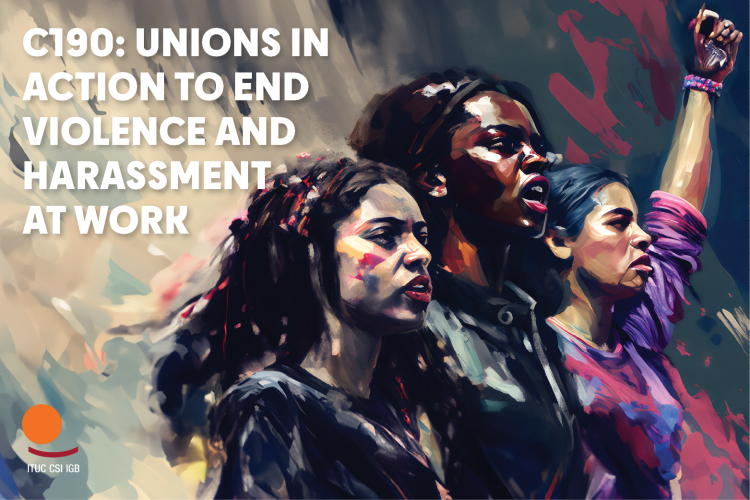C190 and R206 are key to ending the scourge of harassment and violence in the world of work.
Based on a survey of 104 union confederations in 66 countries, the ITUC briefing shows that 92 per cent of them are working to secure the ratification and implementation of C190/R206, and 85 per cent are engaged in social dialogue to align national laws and policies with C190/R206.
- In Indonesia, union campaigning led to the inclusion of sexual harassment in the new criminal law.
- The Central General de Trabajadores de Guatemala successfully lobbied for an amendment to the criminal law on harassment.
- In Bulgaria, the law was amended following a long campaign by teachers’ unions against third-party violence and harassment.
- In Zimbabwe, a new law was passed after a sustained union campaign to include parts of C190 in domestic law, even though the country has not yet ratified C190.
Since its adoption in 2019, 36 countries have ratified C190, and the ITUC briefing reveals that trade unions expect another 20 ratifications in 2024.
ITUC General Secretary Luc Triangle said: “There is a lot of good news in this briefing, and I congratulate our affiliates for everything they have achieved so far. The ITUC will continue to support them as they work for more ratifications.
“However, as these unions understand very well, the key to C190 and R206 is implementation; this is what will make the real difference to the daily lives of working people. I am dismayed to see the challenges unions face in convincing governments and employers to do this.
“But we can change this. This briefing demonstrates an extraordinary mobilisation of trade unions, led by women, to build a world of work free from violence and harassment and a New Social Contract based on gender transformative and inclusive policies.”


